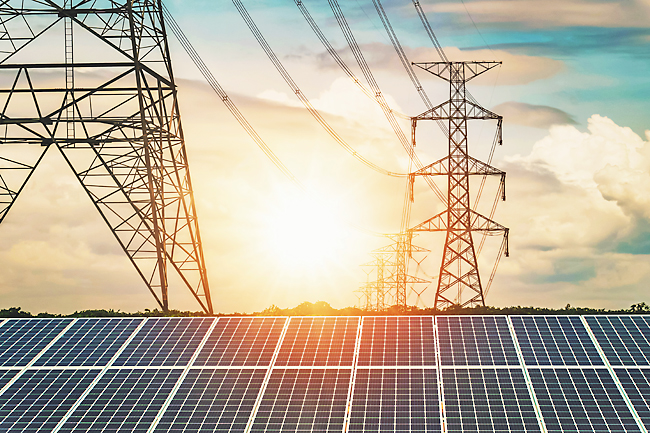Danial Norjidi
On November 4 last year, Brunei Darussalam joined more than 70 other countries and organisations in supporting ‘The Global Coal to Clean Power Transition Statement’ at the 26th Session of the United Nations (UN) Conference on Climate Change (COP26).
The Sultanate acknowledges coal-fired power generation as the single biggest cause of global temperature increase, and recognises the urgent need for an accelerated energy transition.
In addition, the Sultanate pledged commitment to working together to make clean power the most affordable and accessible option, with a vision to accelerate transition away from unabated coal-fired power generation.
As a signatory country, the Sultanate is committed to rapidly scaling up the deployment of clean power generation and energy efficiency measures; rapidly scaling up technologies and policies in this decade to achieve transition away for unabated coal-fired power generation as soon as possible; to cease the issuance of new permits of new unabated coal-fired power generation and cease new construction for unabated coal-fired power generation projects; and to strengthen domestic and international efforts to provide a robust framework to make just and inclusive transition way from unabated coal-fired power in a way that benefits the affected workers, sectors and communities.
Brunei Darussalam’s utility power generation mix currently stands at 98 per cent from natural gas, with remaining contributions from diesel and renewable energy.
The Brunei Darussalam National Climate Change Policy (BNCCP) has set out the country’s target to increase renewable energy contribution to 100 MW by 2025 and to at least 30 per cent of the total capacity of the utility generation mix by 2035.

Brunei Darussalam will continue to exclude coal as an option for utility power generation.
Another notable development took place on November 18, 2021, when 13 companies signed on to the Brunei Energy Industry Integrity Pact (BEIIP) in a virtual ceremony.
The BEIIP is a pledge by companies to support a fair and honest oil and gas industry in the country. It consists of a set of 10 industry standards and expectations relating to transparency in business and good governance.
They include the following: prohibition of bribery and facilitation payments in business activities; a code of conduct in place and its principles disseminated to staff and contractors; consistent consequence management for violations of the code and principles; visible training programme and communications in place; disclosure and avoidance of conflicts of interest; avoidance of gifts and hospitality which can lead to perceived influence or conflicts; governance and internal controls/policies in place; raising concerns, whistleblowing mechanisms, speaking up without fear of retaliation; investigations conducted impartially, fairly, and in timely fashion, and full collaboration with the Anti-Corruption Bureau (ACB); and refrain from doing business with those who demonstrate poor integrity and ethical practices.
Through the BEIIP, the oil and gas industry is conveying the message that any company lacking integrity and transparency will not have the opportunity to do business with any of the oil and gas operators in Brunei, said the statement.
As of November 2021, the BEIIP is made up of 88 members comprising both international and local companies.
Meanwhile, during the 39th ASEAN Ministers on Energy Meeting (AMEM) on Energy Security and Energy Transition in September last year, Brunei Darussalam with the other ASEAN member countries agreed on the adaptation of the Bandar Seri Begawan Joint Declaration of the 39th ASEAN Ministers of Energy Meeting on Energy Security and Energy Transition as part of the five deliverables for Sultanate’s ASEAN Chairmanship in 2021.
Among the declaration’s objectives include to shape the regional energy outlook even beyond 2025, in ensuring future energy security and accelerating the low-carbon energy transition towards dynamic and sustainable regional economic community. It was shared that this is crucial in ensuring the energy sector continues to make effective and meaningful contributions, particularly towards enhancing ASEAN’s preparedness and response to regional emergencies and disaster.
While officiating and chairing the 39th AMEM, Minister of Energy Dato Seri Setia Dr Awang Haji Mat Suny bin Haji Mohd Hussein said that the joint declaration “will go a long way in pursuing our goal of energy security, while transitioning our diverse energy systems towards lower emissions to achieve access to affordable, reliable, sustainable and modern energy for all”.
The minister also said, “Brunei has also come up with key initiatives, namely the AMEM-wide education and training exchanges on the role of natural gas in advancing a low-carbon energy transition; the AMEM workshop on hydrogen economy and carbon capture, utilisation and storage; ASEAN energy establishments; and climate change organisations cooperation on energy issues and establishing ASEAN energy interaction programmes, which we believe will add value and complement the AMEM priorities this year, as well as give a strong momentum to the implementation of the first year of the ASEAN Plan of Action for Energy Cooperation (APAEC) Phase II: 2021 – 2025.”



















































